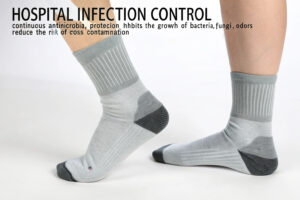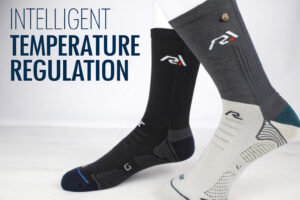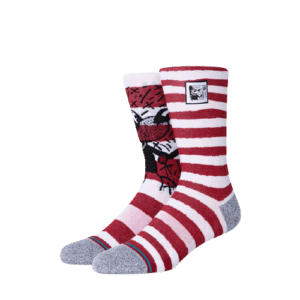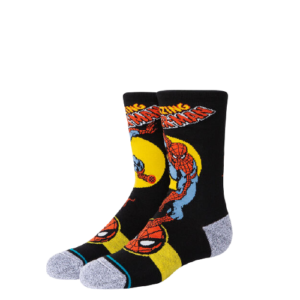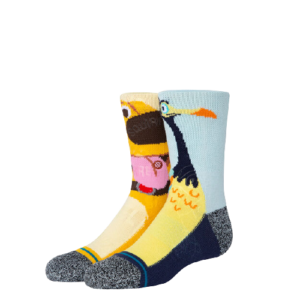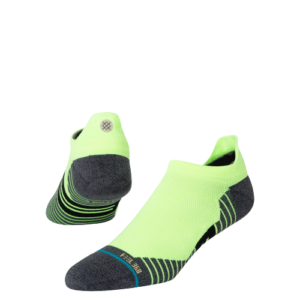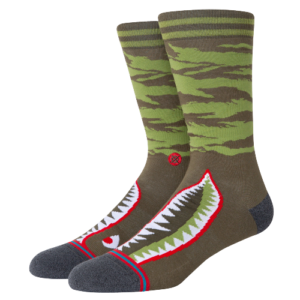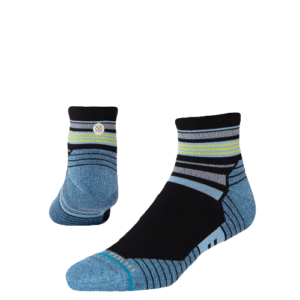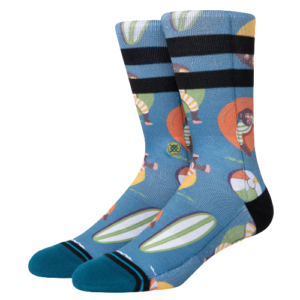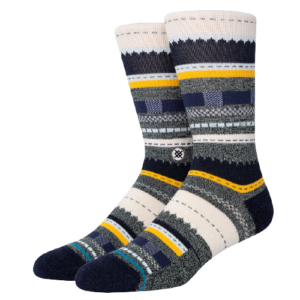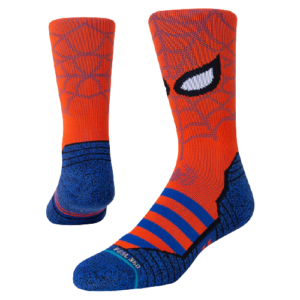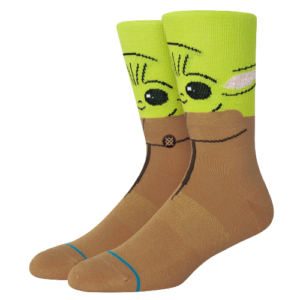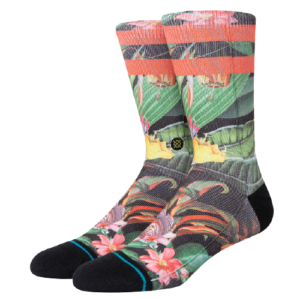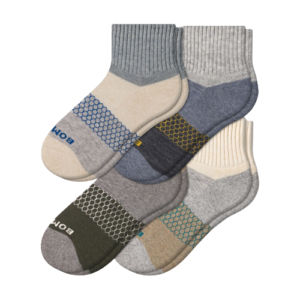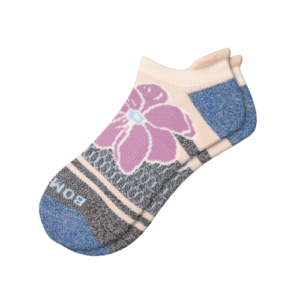Parents around the world are becoming more cautious about what touches their children’s skin. Socks may look like a small detail in a child’s wardrobe, but the fabric choice can impact comfort, safety, and even long-term health. Many buyers and retailers still wonder: is organic cotton really worth it compared to traditional cotton or synthetic fabrics?
Yes, organic cotton socks provide unmatched safety, comfort, and sustainability for babies and children, making them the top choice for modern parents and global apparel buyers.
As a professional socks manufacturer with over a decade of experience, I have seen the shift in demand firsthand. More parents in the U.S., Europe, and Asia are asking retailers for eco-friendly options. Today, I want to show you why organic cotton socks are not just a trend but a responsible investment.
Health Benefits of Organic Cotton for Kids
Parents want the best for their children, especially when it comes to clothing that touches their delicate skin. But many don’t realize that conventional cotton farming often uses harsh chemicals that may remain in the fabric even after processing.
Organic cotton socks reduce the risk of skin irritation, allergies, and exposure to harmful toxins, making them safer for babies and children.

When we produce socks with certified organic cotton, we ensure no pesticides, synthetic fertilizers, or toxic dyes touch the fiber. This is essential for newborns and toddlers, whose skin is five times thinner than adults.
How Do Organic Cotton Socks Prevent Skin Problems?
Organic cotton fibers are naturally soft and free from harsh residues. This reduces friction and prevents rashes or blisters. For example, dermatologists often recommend organic baby clothing to reduce eczema flare-ups. Also, unlike polyester-based socks, organic cotton allows the skin to breathe, preventing sweat buildup that can trigger fungal infections.
Parents in the U.S. and Europe are becoming more informed and willing to pay more for hypoallergenic baby socks. This demand keeps growing year after year.
Why Is Breathability Important for Baby Socks?
Babies cannot regulate body temperature as effectively as adults. Breathable socks help keep their feet dry and warm without overheating. Organic cotton fibers absorb moisture naturally, preventing odors and discomfort. Many pediatricians recommend breathable fabrics for infants to avoid overheating, a risk factor linked to SIDS (sudden infant death syndrome). That’s why organic socks are both a health and safety choice.
Sustainability Advantages of Organic Cotton
The next generation will inherit the planet we leave behind. Choosing sustainable fabrics for children’s wear is no longer optional for many parents—it is a moral responsibility.
Organic cotton production reduces water usage, avoids toxic pesticides, and cuts down carbon emissions, making it a greener choice for socks.

Compared to conventional cotton, organic farming saves up to 91% of water and improves soil health. This is a huge selling point in markets like Europe, where eco-certifications influence purchase decisions.
How Does Organic Cotton Farming Help the Environment?
Organic farming relies on natural methods such as crop rotation and composting. This keeps the soil fertile and avoids harmful chemicals that pollute rivers. For instance, the Textile Exchange reported that organic cotton farming cuts greenhouse gas emissions by 46%. Buyers from brands like H&M and Patagonia already demand organic materials for their children’s collections.
Choosing organic cotton socks also supports farmers working in safer environments. This ensures fewer health risks for agricultural communities compared to pesticide-heavy conventional cotton farming.
Are Eco-Certifications Important for Buyers?
Yes, very much. Certificates like GOTS and OEKO-TEX reassure buyers and consumers that the socks meet strict environmental and social standards. For business owners sourcing children’s products, these certifications reduce liability risks and add credibility to product listings. In fact, European and American retailers often require eco-labels before accepting new suppliers.
Comfort and Durability in Everyday Wear
Parents don’t just want socks that are safe; they want socks that last. Kids run, play, and wear out clothes faster than adults. That’s why fabric durability matters for long-term value.
Organic cotton socks are stronger, softer, and more comfortable than many synthetic options, while still being durable enough for daily wear.

Organic cotton fibers are long and strong, giving the socks a smooth texture and extended lifespan. This reduces pilling and helps the socks hold their shape after multiple washes.
Do Organic Cotton Socks Keep Their Shape After Washing?
Yes. Unlike low-quality cotton socks that shrink or stretch, organic cotton socks maintain elasticity when blended with a small percentage of spandex. According to CottonWorks, organic fibers naturally resist breakage, which is why socks last longer even after heavy use. Parents notice fewer holes and tears, saving them money over time.
Why Do Kids Feel More Comfortable in Organic Socks?
The natural softness of organic cotton makes it less scratchy than synthetic fibers. When paired with cushioned soles, seamless toes, and reinforced heels, these socks offer all-day comfort. This is why many athletic and casual children’s socks now include organic cotton as a core fabric. Comfort is not just about softness; it is also about fit and moisture control, both of which organic cotton provides naturally.
Cost vs. Value: Are Organic Cotton Socks Worth It?
Some buyers hesitate because organic cotton products cost slightly more. But the question should not be about price alone—it should be about value.
Organic cotton socks offer long-term value through health protection, durability, and brand credibility, outweighing the slightly higher upfront cost.

Retailers who stock organic socks report higher customer loyalty and stronger sales margins. Parents are willing to pay extra for safety and sustainability, especially when it comes to their children.
Why Do Retailers See Higher Margins on Organic Cotton Socks?
Organic socks are perceived as premium products. Customers in the U.S. and Europe increasingly search for sustainable fashion keywords online, like “eco-friendly socks” or “organic baby clothes.” According to Statista, the global organic cotton market keeps growing every year. By stocking these socks, retailers can attract eco-conscious customers and strengthen brand positioning.
How Can Importers and Distributors Reduce Costs?
Importers can save by ordering in bulk and working with reliable suppliers like us. We provide integrated services from sampling to customs clearance, which reduces hidden costs. Partnering with manufacturers that invest in efficient production and sustainable logistics further ensures that the supply chain stays cost-effective. Over time, the combination of durability, safety, and reduced risks makes organic socks a profitable investment.
Conclusion
Organic cotton socks are not just a fashion statement. They are a health choice for children, a sustainable choice for the planet, and a smart business decision for retailers and distributors. From protecting delicate skin to providing durability and brand credibility, the benefits are clear.
If you are ready to bring organic cotton socks into your product line, we invite you to partner with Shanghai Fumao. Together, we can co-develop premium, eco-friendly children’s wear collections that meet international standards. For business inquiries, please contact our Business Director Elaine at elaine@fumaoclothing.com.


